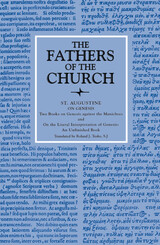
The relationship between Western democracies and Islam, rarely entirely comfortable, has in recent years become increasingly tense. A growing immigrant population and worries about cultural and political assimilation—exacerbated by terrorist attacks in the United States, Europe, and around the world—have provoked reams of commentary from all parts of the political spectrum, a frustrating majority of it hyperbolic or even hysterical.
In The Fear of Barbarians, the celebrated intellectual Tzvetan Todorov offers a corrective: a reasoned and often highly personal analysis of the problem, rooted in Enlightenment values yet open to the claims of cultural difference. Drawing on history, anthropology, and politics, and bringing to bear examples ranging from the murder of Theo van Gogh to the French ban on headscarves, Todorov argues that the West must overcome its fear of Islam if it is to avoid betraying the values it claims to protect. True freedom, Todorov explains, requires us to strike a delicate balance between protecting and imposing cultural values, acknowledging the primacy of the law, and yet strenuously protecting minority views that do not interfere with its aims. Adding force to Todorov's arguments is his own experience as a native of communist Bulgaria: his admiration of French civic identity—and Western freedom—is vigorous but non-nativist, an inclusive vision whose very flexibility is its core strength.
The record of a penetrating mind grappling with a complicated, multifaceted problem, The Fear of Barbarians is a powerful, important book—a call, not to arms, but to thought.

Manichaeism, once the state religion of Persia and long a vigorous contender for converts throughout the ancient Near East, is best remembered for the simplicity of its teachings about divine power. For Manicheans, the universe was ruled by a Lord of Light and a Lord of Darkness, who fought continuously for supremacy. All that was good was a gift from the Lord of Light, and all that was evil was an affliction visited by the Lord of Darkness. This dualism extended to cosmogony and ethics, splitting the universe into a spiritual realm that acted on the goodness of the human soul and a material realm that abetted the evil of the human body. These stark oppositions mask a remarkable degree of doctrinal and liturgical complexity, the details of which have been obscured by centuries of suppression and persecution, first by the Christian church, then by Islam.
One of the world's foremost experts on ancient religions, Michel Tardieu examines the fragmentary sources that have come down to us, pieces together the life and teachings of the prophet Mani (the itinerant Persian preacher and founder of this long lost faith), illuminates Manichaeism's ecclesiastical hierarchy and distinctive moral code, and investigates its ideas about the pre-life and afterlife. Manichaeism provides a brilliantly compact survey of what was once one of the world's great faiths, and then became one of its great heresies, surviving now only as a shadowy presence haunting the religions that superseded it.

READERS
Browse our collection.
PUBLISHERS
See BiblioVault's publisher services.
STUDENT SERVICES
Files for college accessibility offices.
UChicago Accessibility Resources
home | accessibility | search | about | contact us
BiblioVault ® 2001 - 2024
The University of Chicago Press









